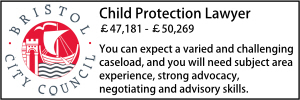UK Government “misrepresented” the law and eluded parliamentary oversight when implementing legislation during pandemic, House of Lords Select Committee finds
- Details
The UK Government "misrepresented" the law on a number of occasions when communicating new public health guidance and restrictions during the pandemic, according to a report published today by the House of Lords' Select Committee on the Constitution.
Relations between the UK Government and parts of local government in England were also stretched during the pandemic, to the "regret" of the House of Lords, the report says.
The report, COVID-19 and the use and scrutiny of emergency powers, also expresses concern over how the government introduced a large volume of new legislation, "much of it transforming everyday life and introducing unprecedented restrictions on ordinary activities" with "extremely limited" parliamentary oversight.
The report listed the following ways in which a conflict between guidance and the law occurred:
- Government publications and statements did not distinguish between public health advice and legal requirements;
- rules were identified by the government as having legal effect without any law having been made;
- ministers assumed a right to issue guidance or legal directions without any delegation of power from Parliament;
- public health advice was incorrectly enforced by the police as though it were law;128 and
- public authorities tasked with enforcing the COVID-19 restrictions misstated, or incorrectly suggested, that guidance had the force of law.
One example of poor communication involved the localised guidance given by the government in May 2021 in response to the new 'Indian variant' of COVID-19.
The localised guidance was made on a government webpage summarising the coronavirus restrictions, which was updated to include new guidance in response to the variant's spread. It told the public to "try to avoid travelling in and out of affected areas unless it is essential".
It was later updated to list Bolton Metropolitan Borough Council and Blackburn with Darwen Borough Council as the areas affected. A week later, Bedford Borough Council, Burnley Borough Council, Kirklees Council, Leicester City Council, London Borough of Hounslow, and North Tyneside Council were added to the list.
This change, according to the report, "led to confusion about whether the areas worst hit by the new variant were subject to new legal restrictions".
In response, Bedford Borough Council met with national officials to confirm that there are no restrictions on travel in or out of the borough. The report notes that other local authorities chose to seek clarification from the government on whether legal requirements concerning travel were put in place or not, including Bolton Council and the Greater Manchester Combined Authority.
"Legal changes introduced in response to the pandemic were often set out in guidance, or announced in media conferences, before Parliament had an opportunity to scrutinise them," the report states. "On occasion, the law was misrepresented in these forums."
The report adds: "The Government's use of guidance and statements to the media have in some instances undermined legal certainty by laying claim to legal requirements that do not exist. The government does not have, and must not assume, authority to mandate public behaviour other than as required by law.
"The consequence has been a lack of clarity on which rules are legally enforceable, posing challenges for the police and local government, leading to wrongful criminal charges, and potentially undermining public compliance and confidence."
To ensure clarity, the report recommended that all future ministerial statements and Government guidance on changes to COVID-19 restrictions clearly distinguish information about the law from public health advice.
The report highlights the "stand off" between the Mayor of Greater Manchester, Andy Burnham and Downing Street, as an example of strained relations between local and central government but suggests that recently relations have improved.
Councillor James Jamieson, Chairman of the Local Government Association, told the House of Lords select committee that during the early stages of the pandemic there was limited cooperation between central and local government. "However, by December 2020, engagement and collaboration had improved."
Mr Jamieson said that the Local Government Association had been making "a lot of representations to government, [the Ministry of Housing, Communities and Local Government] has been engaging with us, and we have come to what I would say is a more balanced position in the powers that we have [in local government]".
Baroness Taylor, Chair of the Constitution Committee, said: "Since March 2020 the government has introduced a large volume of new legislation, much of it transforming everyday life and introducing unprecedented restrictions on ordinary activities. Yet parliamentary oversight of these significant policy decisions has been extremely limited.
"The vast majority of new laws, including the most significant and wide-reaching, have come into effect as secondary legislation and without prior approval from Parliament. When scrutiny is limited through the fast-tracking of legislation, or the extensive use of secondary legislation, essential checks on executive power are lost, and the quality of the law suffers.
"We acknowledge that there have been a number of occasions throughout the COVID-19 pandemic where legislative measures have been urgently required to limit the spread of infection. That does not, however, justify the publication of significant measures hours—and in some case minutes—before taking effect. Emergency legislation is never an acceptable alternative to effective government planning for periods of crisis.
"Government guidance and public statements have —on multiple occasions— undermined legal certainty by laying claim to legal requirements that do not exist. The government does not have, and must not assume, authority to mandate public behaviour other than as required by law."
Adam Carey






























